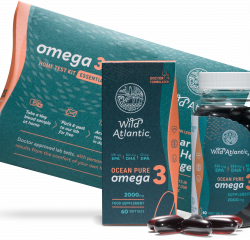The Importance of Vitamin K After Birth: A Comprehensive Overview
Vitamin K plays a crucial role in blood clotting and bone health, making it an essential nutrient for newborns. After birth, babies are often given a vitamin K shot to prevent potentially life-threatening bleeding. This article explores the significance of vitamin K after birth, its benefits, and why it’s a standard practice in neonatal care.
Understanding Vitamin K and Its Functions
Vitamin K is a fat-soluble vitamin that is vital for synthesizing proteins necessary for blood clotting and bone metabolism. It comes in two primary forms: vitamin K1 (phylloquinone) found in green leafy vegetables and vitamin K2 (menaquinone) found in fermented foods and animal products. Both forms are crucial for maintaining healthy bodily functions, particularly in newborns who have low levels of this vitamin at birth.
Why Newborns Need Vitamin K
Newborns have naturally low levels of vitamin K because it does not easily pass through the placenta from the mother to the baby. Additionally, breast milk contains only small amounts of vitamin K. These low levels can lead to a rare but serious condition known as vitamin K deficiency bleeding (VKDB), which can cause severe bleeding in the brain or intestines.
To prevent VKDB, healthcare providers administer a single injection of vitamin K shortly after birth. This practice has been widely adopted and is recommended by major health organizations worldwide due to its proven effectiveness in preventing bleeding disorders in newborns.
Benefits of Vitamin K Administration at Birth
Administering vitamin K after birth offers several key benefits:
| Benefit | Description |
|---|---|
| Prevents VKDB | Vitamin K injections are highly effective in preventing all forms of vitamin K deficiency bleeding. |
| Ensures Proper Blood Clotting | It helps in the synthesis of clotting factors, reducing the risk of internal and external bleeding. |
| Supports Bone Health | Vitamin K is essential for bone mineralization, contributing to stronger bones as the child grows. |
| Long-Term Safety | Numerous studies have confirmed the long-term safety of vitamin K injections with no significant adverse effects. |
Alternative Methods of Vitamin K Administration
While the injection is the most common method of vitamin K administration, some parents opt for oral supplements. However, oral administration requires multiple doses to achieve the same level of protection as a single injection, making compliance more challenging.
Conclusion
Vitamin K is crucial for newborns to prevent VKDB and ensure proper blood clotting and bone health. The administration of a vitamin K injection at birth is a well-established, safe, and effective practice. While oral alternatives exist, they are less convenient and may not provide the same level of protection. For more insights on vitamins and their impact on health, explore our articles on the real impact of vitamin D deficiency and how long it takes for vitamin D to work.





























